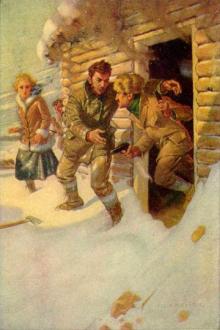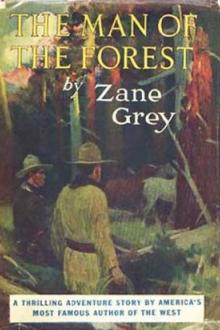Astoria; Or, Anecdotes of an Enterprise Beyond the Rocky Mountains by Irving (top romance novels .TXT) 📗

- Author: Irving
Book online «Astoria; Or, Anecdotes of an Enterprise Beyond the Rocky Mountains by Irving (top romance novels .TXT) 📗». Author Irving
The breaking out of the war between the United States and Great Britain multiplied the hazards and embarrassments of the enterprise. The disappointment as to convoy rendered it difficult to keep up reinforcements and supplies; and the loss of the Lark added to the tissue of misadventures.
That Mr. Astor battled resolutely against every difficulty, and pursued his course in defiance of every loss, has been sufficiently shown. Had he been seconded by suitable agents, and properly protected by government, the ultimate failure of his plan might yet have been averted. It was his great misfortune that his agents were not imbued with his own spirit. Some had not capacity sufficient to comprehend the real nature and extent of his scheme; others were alien in feeling and interest, and had been brought up in the service of a rival company. Whatever sympathies they might originally have had with him, were impaired, if not destroyed, by the war. They looked upon his cause as desperate, and only considered how they might make interest to regain a situation under their former employers. The absence of Mr. Hunt, the only real representative of Mr. Astor, at the time of the capitulation with the Northwest Company, completed the series of cross purposes. Had that gentleman been present, the transfer, in all probability, would not have taken place.
It is painful, at all times, to see a grand and beneficial stroke of genius fall of its aim: but we regret the failure of this enterprise in a national point of view; for, had it been crowned with success, it would have redounded greatly to the advantage and extension of our commerce. The profits drawn from the country in question by the British Fur Company, though of ample amount, form no criterion by which to judge of the advantages that would have arisen had it been entirely in the hands of the citizens of the United States. That company, as has been shown, is limited in the nature and scope of its operations, and can make but little use of the maritime facilities held out by an emporium and a harbor on that coast. In our hands, besides the roving bands of trappers and traders, the country would have been explored and settled by industrious husbandmen; and the fertile valleys bordering its rivers, and shut up among its mountains, would have been made to pour forth their agricultural treasures to contribute to the general wealth.
In respect to commerce, we should have had a line of trading posts from the Mississippi and the Missouri across the Rocky Mountains, forming a high road from the great regions of the west to the shores of the Pacific. We should have had a fortified post and port at the mouth of the Columbia, commanding the trade of that river and its tributaries, and of a wide extent of country and sea-coast; carrying on an active and profitable commerce with the Sandwich Islands, and a direct and frequent communication with China. In a word, Astoria might have realized the anticipations of Mr. Astor, so well understood and appreciated by Mr. Jefferson, in gradually becoming a commercial empire beyond the mountains, peopled by “free and independent Americans, and linked with us by ties of blood and interest.”
We repeat, therefore, our sincere regret that our government should have neglected the overture of Mr. Astor, and suffered the moment to pass by, when full possession of this region might have been taken quietly, as a matter of course, and a military post established, without dispute, at Astoria. Our statesmen have become sensible, when too late, of the importance of this measure. Bills have repeatedly been brought into Congress for the purpose, but without success; and our rightful possessions on that coast, as well as our trade on the Pacific, have no rallying point protected by the national flag, and by a military force.
In the meantime, the second period of ten years is fast elapsing. In 1838, the question of title will again come up, and most probably, in the present amicable state of our relations with Great Britain, will be again postponed. Every year, however, the litigated claim is growing in importance. There is no pride so jealous and irritable as the pride of territory. As one wave of emigration after another rolls into the vast regions of the west, and our settlements stretch towards the Rocky Mountains, the eager eyes of our pioneers will pry beyond, and they will become impatient of any barrier or impediment in the way of what they consider a grand outlet of our empire. Should any circumstance, therefore, unfortunately occur to disturb the present harmony of the two nations, this ill-adjusted question, which now lies dormant, may suddenly start up into one of belligerent import, and Astoria become the watchword in a contest for dominion on the shores of the Pacific.
Since the above was written, the question of dominion over the vast territory beyond the Rocky Mountains, which for a time threatened to disturb the peaceful relations with our transatlantic kindred, has been finally settled in a spirit of mutual concession, and the venerable projector whose early enterprise forms the subject of this work had the satisfaction of knowing, ere his eyes closed upon the world, that the flag of his country again waved over “ASTORIA.”
APPENDIX
Draught of a Petition to Congress, sent by Mr. Astor in 1812.
To the honorable the Senate and House of Representatives of the United States, in Congress assembled,
The petition of the American Fur Company respectfully showeth:
THAT the trade with the several Indian tribes of North America has, for many years past, been almost exclusively carried on by the merchants of Canada; who, having formed powerful and extensive associations for that purpose, being aided by British capital, and being encouraged by the favor and protection of the British government, could not be opposed, with any prospect of success by individuals of the United States.
That by means of the above trade, thus systematically pursued, not only the inhabitants of the United States have been deprived of commercial profits and advantages, to which they appear to have just and natural pretensions, but a great and dangerous influence has been established over the Indian tribes, difficult to be counteracted, and capable of being exerted at critical periods, to the great injury and annoyance of our frontier settlements.
That in order to obtain at least a part of the above trade, and more particularly that which is within the boundaries of the United States, your petitioners, in the year 1808, obtained an act of incorporation from the State of New York, whereby they are enabled, with a competent capital, to carry on the said trade with the Indians in such a manner as may be conformable to the laws and regulations of the United States, in relation to such a commerce.
That the capital mentioned in the said





Comments (0)